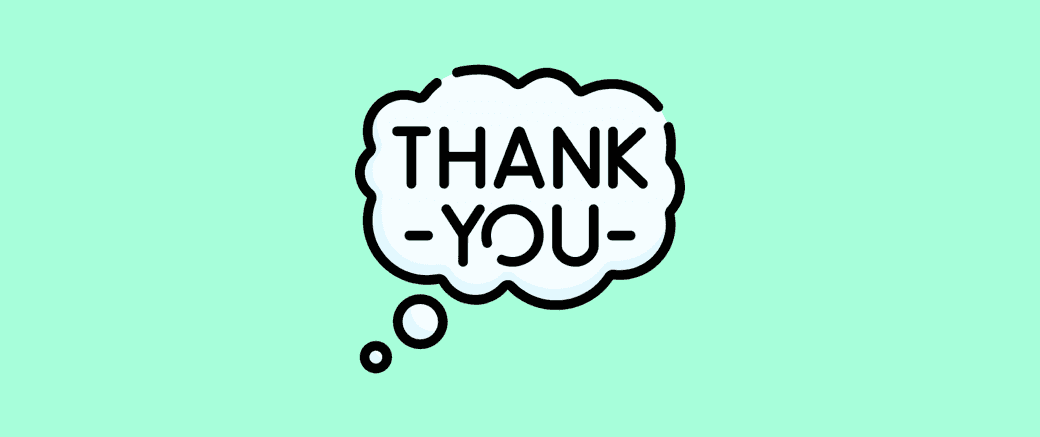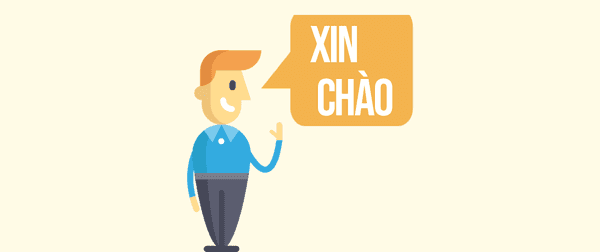How to say "Thank you" in Vietnamese formal and informal ways

"Thank you" is one of the first few words that you will need to know when learning Vietnamese.
Just like many other languages, there are formal and informal ways of saying "Thank you" in Vietnamese.
In this short lesson, we'll learn many ways to express your gratitude to the Vietnamese people in your day-to-day conversations, just like a native speaker.
Informal "Thank you" in Vietnamese
Cám ơn is the standard way of saying thank you in Vietnamese, especially in Southern Vietnam.
In Northern Vietnam, you may hear cảm ơn instead, with a different accent mark, as thank you. Just know that there is no difference in terms of meaning.
The word cảm means "to feel", whereas the word ơn means "favor". Cảm ơn can literally be translated as "to feel the favor" someone has given you.
So don't forget to say cảm ơn to:
- The border control person when he returns your passport
- The taxi driver who drops you off at your hotel
- The hotel staff who opens the door for you and helps you with the luggage
- The waiter who brings you food and drinks
- The street seller who hands you the food and the changes
Be more polite when saying "Thank you" in Vietnamese
Knowing the word cảm ơn is sufficient if you're a traveler. But if you're an expat or someone who wants to impress the locals by being extra respectful, you'll need to go beyond the 2 words cảm ơn.
a. Including personal pronouns
The most common way to sound more polite is to add a personal pronoun after the word cảm ơn.
Personal pronouns, in this case, are just different words for "You", depending on that person's age (generation) and gender. For instance, you can say:
Cám ơn anh - to thank someone who seems old enough to be your older brother
Cám ơn chị - to thank someone who seems old enough to be your older sister
Cám ơn em - to thank someone who seems young enough to be your younger sibling
Cám ơn chú - to thank someone who seems old enough to be your uncle
Cám ơn cô - to thank someone who seems old enough to be your aunt
b. Adding polite articles
The easiest way to be more polite, of course, is to add "polite articles"!
Native speakers often use them when speaking to someone who is more seniors to show respect. You won't have to use these articles with someone who seems younger than you.
What are these polite articles?
-
Dạ is often placed at the beginning of the response sentences. For example: Dạ cám ơn / Dạ cám ơn anh / Dạ cám ơn cô
-
Ạ is often placed at the end of the response sentences. For example: Cám ơn anh ạ / Cám ơn cô ạ
Emphasize your gratitude in Vietnamese
To emphasize strong gratitude towards someone, you can place the word nhiều after the phrase cám ơn [pronoun].
Nhiều is the equivalent of "a lot" or "much" in English.
Examples: Cám ơn anh nhiều / Cám ơn chú nhiều. Without the pronoun, this phrase would sound impolite.
To express gratitude even more sincerely, especially when you feel touched or very grateful for what the person has done, you can use the phrase nhiều lắm
Nhiều lắm literally means "so much" in English.
Examples: Cám ơn anh nhiều lắm! / Cám ơn chú nhiều lắm!
Most natural ways to say "How are you" in VietnameseFormal "Thank you" in Vietnamese
Xin cảm ơn is used to say "Thank you" in a more formal situation. The word xin can be translated to "to beg", "to ask for a favor".
You will most likely come across this phrase on TVs or in the interviews, which oftentimes requires more formality and politeness.
Responses to "Thank you" in Vietnamese
When you say "thank you" to a person who is more senior than you, expect them to just give you a gentle nod as a reply without saying anything.
But when it's your turn to respond to someone who is thanking you, what do you say?
Có gì đâu literally means "It's nothing".
When replying to "Cám ơn" said by someone who is around your age, you can say có gì đâu. This phrase is very casual and mostly used with someone you know well.
You can also use có gì đâu to respond to "I'm sorry" in Vietnamese, which is the same as saying "it's nothing to worry about".
Không có chi can be translated to "You're welcome".
When replying to "Cám ơn" said by someone who is more senior than you or to someone you don't know that well, Không có chi is fantastic to respond to them in a polite way.
Don't forget the polite article when using this phrase ⇢ Dạ không có chi.
In case you want to impress your Vietnamese partner, friends or neighbors, check out my free mini-course to learn 15 essential Vietnamese phrases for beginners, including how to say "hello", "thank you", "how are you", etc. in Vietnamese.
Be the first to know
Join our Newsletter to receive monthly learning tips and updates!


